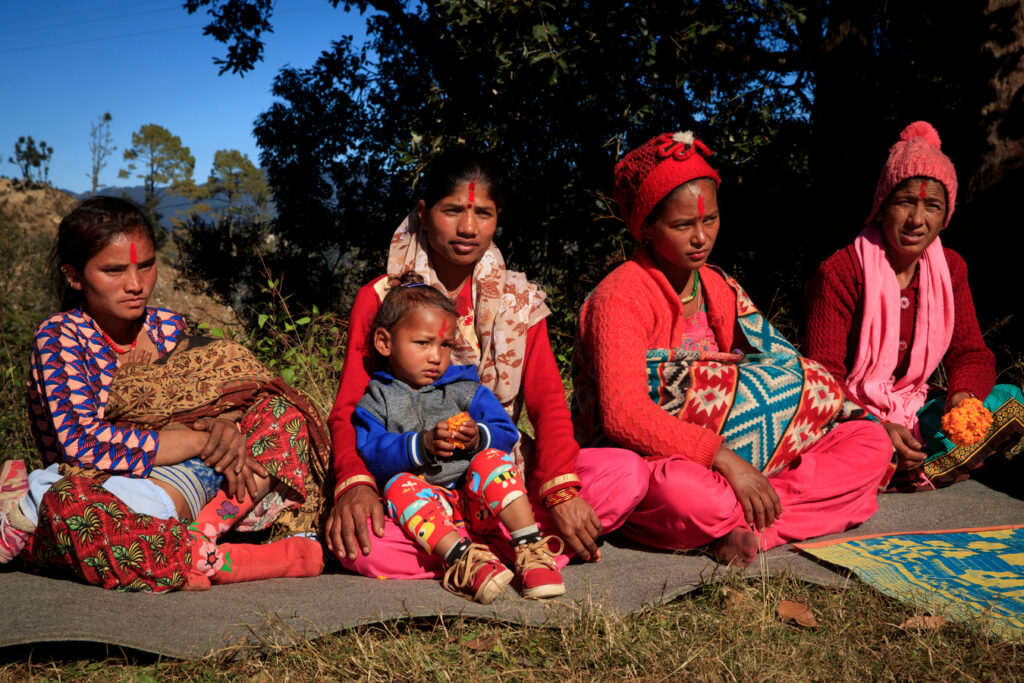Global hunger is a critical challenge that affects at least 733 million people. That’s every 1 in 11 individuals around the world who are hungry and malnourished. The top causes of hunger are international conflict, climate disasters, and poverty. And unfortunately, every country in the world experiences it.
From Africa to Asia, the Middle East to North America, and everywhere in between, our global charity partners are leading the way for a brighter future. Charities like World Food Program USA, Helen Keller Intl, Rise Against Hunger, and the Clinton Foundation are at the forefront of combating this issue, providing not only emergency food supplies but also long-term solutions for food security in countries around the world. Their work helps restore hope and dignity to those affected by hunger, ensuring that vulnerable populations receive the nourishment they need to survive and thrive.
The stories below are just a few examples of the impactful work these charities do. You can play a vital role in this effort to end hunger. By giving to these charities at work, you help fuel these initiatives, bringing relief to communities in need around the world.
World Food Program USA
Country: Afghanistan
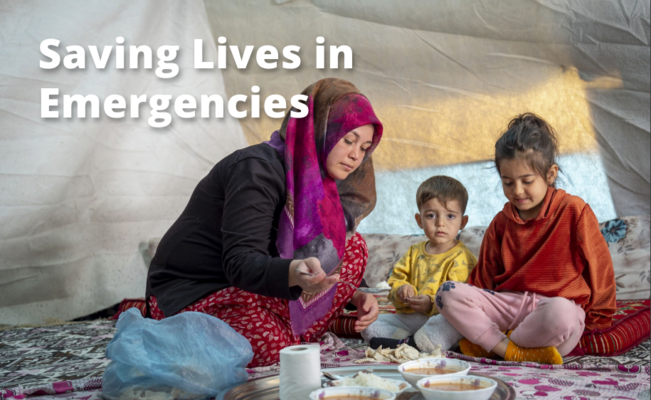
Nearly 15.3 million people in Afghanistan face severe hunger, driven by decades of conflict, extreme climate shocks, and deteriorating economic conditions. In October 2023, multiple earthquakes struck western provinces of Afghanistan, affecting more than 150,000 people. On the heels of this crisis, a recent policy in Pakistan forced undocumented Afghans to leave the country by Nov. 1. Thousands of Afghans have returned to border areas since then. The lives of women and girls in Afghanistan have drastically changed over the past two years with curbed access to education, work, and public life. This has profound effects on their food security.
World Food Program is often the last lifeline for women, who are increasingly being pushed out of society with dwindling options to make a living and feed their children. The food security situation will likely continue to deteriorate, especially as harsh winter conditions set in. In 2023, WFP reached millions of people with food and cash transfers. In October alone, WFP reached 4 million people with 54 million pounds of food and $8.3 million in cash assistance. WFP remains committed to its humanitarian mandate and will continue to deliver assistance in spite of a challenging operational environment.
Helen Keller Intl
Country: Nepal
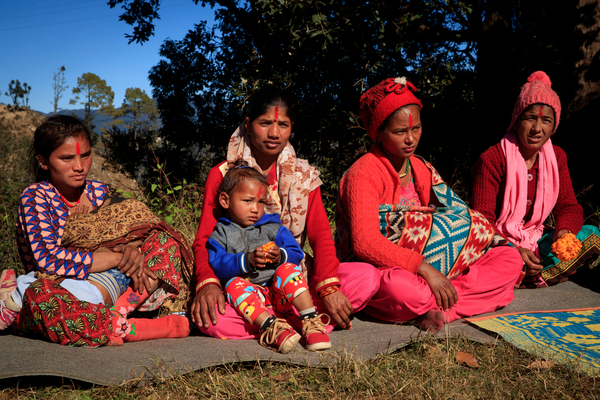
When Parbati Khatri and her 2-year-old son, Umesh, attended a mothers’ health group meeting, one of Helen Keller’s frontline nutrition workers noticed how thin they both were. At the health facility in their community in Nepal’s far western Doti district, Umesh was diagnosed with severe malnutrition, and Parbati, who was then six months pregnant, learned she was also malnourished.
The health facility quickly began Umesh’s treatment of ready-to-use therapeutic food, a nutrition paste that was crucial to his recovery. Parbati also learned about locally available nutritious foods, like eggs, that she could eat to help her gain weight and recover from her own malnutrition.
Three months later, Umesh and his mother had both recovered, and Parbati gave birth to a healthy baby, Manoj. Parbati has also continued following the advice she received at the health center, which has helped her stay healthy and have the energy to keep up with her two small children. “I am glad that my child and I received timely support,” she said. “After I knew that I needed to eat more and better for my child to grow healthy in my womb, I started eating more vegetables and eggs.”
Rise Against Hunger
Country: Somalia
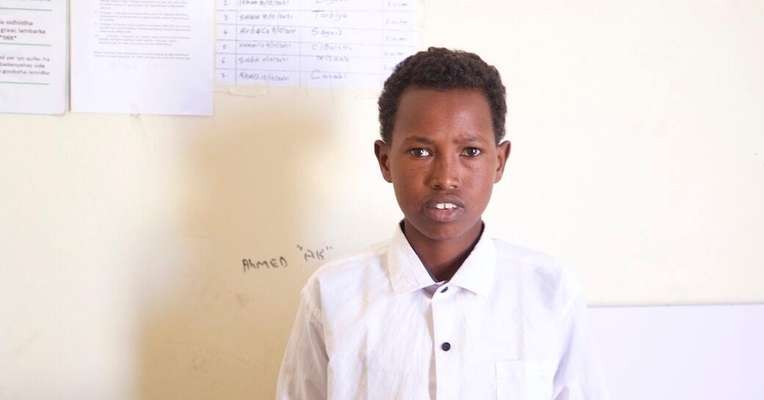
With dreams of becoming a doctor, 15-year-old Farhan walks more than 3.5 miles every day to and from his school in Dilla, Somaliland, where he not only receives an education, but also a meal to support his nutritional needs. Dilla’s semi-arid climate leads to food and water insecurity for many in the community.
To alleviate food insecurity for children and families in the community, the school that Farhan attends feeds 918 students through a school feeding program. Rise Against Hunger provides cash grants to partner ARAHA, which are used to purchase food locally for school meals. Many students are also able to bring food home to their families, which helps to nourish more people in the community.
In addition to nourishment, the local food procurement stimulates the economy because the food is purchased locally. Mohamoud, the school principal, shares, “This pandemic caused inflation and… the community didn’t get rainwater, which worsened the situation because, if rain comes, the community can get milk to sell and local food to sell and what they get from this they use to fulfill their needs.”
The school meals have helped make Farhan’s journey to and from school easier, which supports his education and future dreams of becoming a doctor. He shares “[The school feeding program] makes life and travel easier for us as students. Before it was hard to travel back with an empty stomach, and after this activity, it’s easy to go back and travel with a full stomach.”
Clinton Foundation
Country: United States
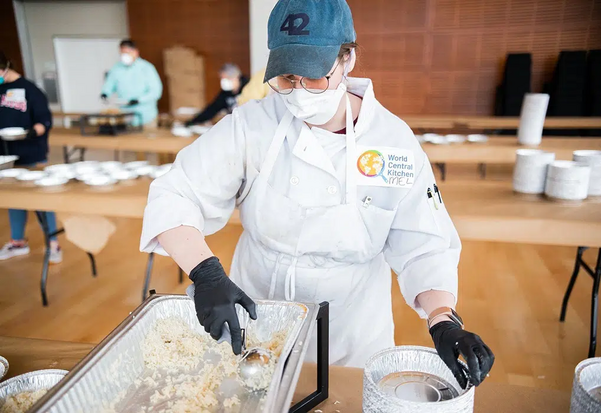
In 2019, when a lengthy government shutdown affected civil service workers, World Central Kitchen teamed up with restaurants and other food providers across the country to provide meals for the furloughed government employees and their families — including at the Clinton Presidential Center in Little Rock, Arkansas. Together with local food truck owner Kyle Pounders, staff from the Clinton Foundation and World Central Kitchen helped provide 70,000 meals for those impacted in the central Arkansas region. The Clinton Foundation also quickly mobilized a Day of Action service project to help the Arkansas Food Bank and the Diaper Bank of the Ozarks, sorting and packing diapers and essential items to be distributed to impacted families.
Little did they know that thanks to this initial partnership in 2019, the Clinton Foundation and World Central Kitchen were better prepared to mobilize quickly when the COVID-19 crisis began to affect the Little Rock community. Along with the City of Little Rock, local school districts, and other partners, the Clinton Foundation and World Central Kitchen responded after local schools were closed to help prepare and distribute thousands of meals from the Clinton Center — more than 350,000 meals to date — to students, families, seniors, and other vulnerable people in need.
Through this effort, the Clinton Center has been transformed into the hub for cooking, packaging, and delivering meals for the community. Each day, a force of more than 60 volunteers works to make sure that nearly 7,000 meals are accessible. Meals are loaded and distributed to grab-and-go pick up points around the county with the help of local food trucks. For the elderly, meals are delivered directly to their residences. Lunch and dinner are available to anyone in need each weekday, as well as lunch on weekends.
The fight against global hunger is far from over, but the stories from organizations like the World Food Program USA, Helen Keller Intl, Rise Against Hunger, and the Clinton Foundation demonstrate the remarkable impact we can achieve. By providing critical resources and support, these organizations are changing lives and creating long-term solutions to food insecurity.
Your workplace contribution makes a difference, supporting these efforts to help communities in need overcome hunger and build a brighter future.

